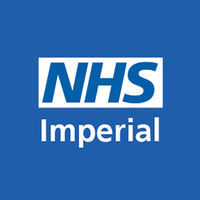The SABRE Trial: A Single-arm Prospective Study Measuring Safety, Tolerability and Pharmacokinetics of Two SARS-CoV-2 Neutralising Antibodies (C135-LS and C144-LS) Amongst High-risk Special Populations of Vaccine Non-responders.
The SABRE study is a single-arm prospective study measuring safety, tolerability and pharmacokinetics of two SARS-CoV-2 neutralising antibodies (BMS-986414 and BMS-986413) amongst high-risk special populations of vaccine non-responders. The aim is to test the hypothesis that for individuals who fail to mount a measurable immune response to a routinely offered SARS-CoV-2 prophylactic vaccine or for those who are not able to receive such a vaccine (for example those receiving a bone marrow transplant or starting chemotherapy treatment), the receipt of subcutaneous injection of two long-acting neutralising antibodies BMS-986414 and BMS-986413 will confer durable high titres and subsequent immunological protection against SARS-CoV-2 infection.120 eligible participants will be enrolled and followed up for 48 weeks after the one-time dosing visit. Primary inclusion criteria are patients age 18 years and older and either 1) have received two doses of a routine NHS standard of care SARS-Cov-2 vaccine and do not have detectable serum SARS-CoV-2 anti-spike antibodies in routine NHS assays more than two weeks post-vaccination, or do not have protective levels of antibody or 2) be ineligible to receive a SARS-CoV-2 prophylactic vaccine. This could be because they need to commence immediate systemic chemotherapy or receive bone marrow and therefore the requirement to initiate profound immune suppression. Primary objectives are to determine the safety, tolerability and detectable SARS-CoV-2 antibody by specific PPD assay in serum at 12 weeks after enrolment.
Adaptive Platform Treatment Trial for Outpatients With COVID-19 (Adapt Out COVID)
Drug studies often look at the effect one or two drugs have on a medical condition, and involve one company. There is currently an urgent need for one study to efficiently test multiple drugs from more than one company, in people who have tested positive for COVID-19 but who do not currently need hospitalization. This could help prevent disease progression to more serious symptoms and complications, and spread of COVID-19 in the community.
This study looks at the safety and effectiveness of different drugs in treating COVID-19 in outpatients. In Phase II, participants in the study will be treated with either a study drug or with placebo. In protocol version 7.0, participants in Phase III of the study will be treated with either a study drug or active comparator drug. Participants assigned to the bamlanivimab agent/placebo arm and will have 28 days of intensive follow-up following study drug administration, followed by limited follow-up through 24 weeks in phase II and in phase III. All other investigational agents and their corresponding placebo arms will involve 28 days of intensive follow-up, followed by limited follow-up through 72 weeks in phase II and phase III. Additional study visits may be required, depending on the agent.
100 项与 BMS-986413 相关的临床结果
100 项与 BMS-986413 相关的转化医学
100 项与 BMS-986413 相关的专利(医药)
1
项与 BMS-986413 相关的新闻(医药)作者:黄仲平
11月可谓新冠“特效药”的收获期,相继获批的抗体及药物似乎让世界看到了战胜疫情的希望。
在这些“特效药”中,既有中和抗体,又有小分子抗病毒药物,还有免疫调节剂;跨国大药企率先撞线,我国科学家奋力追赶。但无论哪种技术路线,研发进度的快慢都不是最重要的,人们最关心的还是“疗效”。
在众多已经获批或正在研究的项目中,哪一款才真正担得起“特效药”的名号?
中和抗体
近日,欧洲医药管理局(EMA)宣布,欧盟已经批准两款新冠单克隆抗体药物上市,分别是罗氏和再生元联合开发的Ronapreve、韩国Celltrion公司开发的Regkirona,两者疗效如何?
Ronapreve:70%
Ronapreve由罗氏和再生元联合开发,是一款由两种靶向新冠病毒刺突蛋白不同表位的中和抗体构成的组合疗法,用于治疗不需要补充氧气且疾病恶化风险增加的成人和青少年患者(12岁以上,体重至少40公斤),它同时获批用于在青少年和成人中预防COVID-19。
III期临床试验结果显示,与安慰剂相比,接受静脉注射Ronapreve的患者住院或死亡风险降低了70%,这一组合同时将患者的症状持续时间缩短4天。此外,Ronapreve在预防新冠病毒感染方面也获得了良好的效果,在III期临床试验中,接受一剂皮下注射的志愿者,患上出现症状的COVID-19的风险降低81%。
Regkirona:70%
Regkirona是由韩国Celltrion公司研发。
在今年7月举行的第31届欧洲临床微生物学与传染病学会(ECCMID)上,Celltrion公布了Regkirona全球III期临床试验数据,结果显示,与安慰剂相比,接受Regkirona治疗的患者住院或死亡风险降低了70%。在病情恶化风险增加的患者中,接受Regkirona治疗的患者中有3.1%(14/446)住院、氧气治疗或在治疗后28天内死亡,而安慰剂组中这一数值为11.1%(48/434)。
除了上述两款在欧盟获批的中和抗体,目前已被FDA授权紧急使用(EUA)或已递交EUA的中和抗体还有数款,包括礼来的Etesevimab和Bamlanivimab双抗疗法、葛兰素史克的Sotrovimab、腾盛博药的BRII-196/BRII-198联合疗法、阿斯利康的AZD7442。
礼来的Etesevimab和Bamlanivimab双抗疗法在今年2月获FDA紧急使用授权,该项EUA是根据1月的III期临床试验数据决定。该数据显示Etesevimab和Bamlanivimab双抗体疗法可使COVID-19住院和死亡风险降低70%。
不过该双抗疗法对今年春天的Gamma和Delta变异毒株无效,曾在6月被美国监管部门停发,后又于今年8月恢复授权。根据最新消息,11月2日,礼来宣布已与美国政府达成协议,礼来将供应61.4万剂中和抗体双抗疗法,交易总价12.9亿美元。
另外值得一提的是,Etesevimab是由我国君实生物与中科院共同开发,2020年5月君实生物将Etesevimab大中华区以外权益授予礼来,获得1000万美元预付款、最高2.45亿美元里程碑付款及产品销售净额两位数百分比的销售分成。
葛兰素史克的Sotrovimab于今年5月获FDA紧急使用授权,根据III期试验的中期数据显示,与安慰剂相比,Sotrovimab治疗将高危门诊COVID-19成人患者住院或死亡的风险降低了85%。此外,体外数据还表明,Sotrovimab对所有已知病毒变体均保持活性,包括来自印度的变体。
Sotrovimab在今年第三季度销售额达到了1.56亿美元。
腾盛博药的BRII-196/BRII-198联合疗法已于10月向FDA提交紧急使用授权。这款来自中国的联合疗法由清华大学和深圳市第三人民医院共同开发。
提交的EUA申请是基于美国国立卫生研究院(NIH)支持的III期临床试验积极结果。结果显示,与安慰剂相比,BRII-196/BRII-198联合疗法使临床进展为重度疾病高风险的COVID-19门诊患者住院和死亡风险降低78%。该试验是目前在美国的唯一一个中国公司在进展中的大规模三期试验。该联合疗法有望成为国内第一个获批的新冠中和抗体药物,受此影响,腾盛博药股价11月9日以来已经涨超65%。
阿斯利康的AZD7442于10月向FDA提交紧急使用授权。AZD7442是两个长效抗体Tixagevimab(AZD8895)和Cilgavimab(AZD1061)的组合,是从感染新冠病毒的恢复期患者B细胞中提取,由美国范德比尔特大学医学中心发现,并于2020年6月授权给阿斯利康。
根据10月公布的AZD7442的III期临床试验结果显示,与安慰剂相比,轻度非住院患者通过肌肉注射600毫克剂量AZD7442,发生重症或死亡的风险降低50%;在对出现症状五天内接受治疗的参与者进行的预先分析结果显示,与安慰剂相比,AZD7442将发生重症或死亡的风险降低67%。
除了以上中和抗体,处于临床III期或II期的在研产品还有来自Tychan的TY027、Abpro的ABP-300、BMS的BMS-986414/BMS-986413、SAB的SAB-185、神州细胞的SCTA01、博安生物的LY-CovMab、济民可信的JMB-2002等。
小分子口服药
较于中和抗体,小分子口服药有很多优势:方便早期用药,合成成本低,可常温保存,便于发展中国家采购使用,可快速用于密接者等高风险人群并帮助轻症患者快速控制病情等。因此在技术路线上,抗新冠病毒小分子口服药受到更多青睐。
就在刚刚过去不久的11月4日,默沙东的Molnupiravir在英国获批上市,成为全球首个正式获批上市的小分子口服抗新冠病毒药物,引起了极大震动。巧合的是,就在Molnupiravir获批的第二天,辉瑞发布了其抗新冠病毒小分子口服药Paxlovid的临床试验数据,抢走了Molnupiravir的关注度。
Molnupiravir:50%
Molnupiravir是默沙东与Ridgeback Biotherapeutics合作研发的一种口服核糖核苷类似物,可抑制包括SARS-CoV-2(新冠病毒的致病因子)在内的多种RNA病毒的复制,用于治疗轻度到中度的新冠肺炎。
从去年3月开始鉴定药物抗冠状病毒活性到药物在英国获批上市,仅用了一年半时间,Molnupiravir开创了口服抗病毒药物开发的纪录。默沙东已于10月11日向FDA递交了Molnupiravir的上市申请,目前仍处于审评状态。
根据10月1日默沙东公布的三期临床中期数据显示,Molnupiravir治疗组的住院或死亡率为7.3%(28/385),对照组的住院或死亡率为14.1%(53/377),Molnupiravir将住院或死亡的风险降低了约50%。死亡率方面,治疗组没有死亡,对照组有8例死亡。
Paxlovid:89%
Paxlovid由辉瑞研发,是一种专门设计的SARS-CoV-2-3CL蛋白酶抑制剂。与默沙东的Molnupiravi不同的是,Paxlovid是一个复方药,含有PF-07321332和利托那韦两种药物成分。
11月5日,辉瑞宣布基于随机、双盲、2/3期EPIC-HR试验的中期分析,结果显示,与安慰剂组相比,Paxlovid将患者住院或死亡的风险降低了89%。辉瑞已于16日向FDA提交了Paxlovid的紧急使用授权。
除了上述两款,来自我国的普克鲁胺,也是一款值得期待的抗新冠口服药。
普克鲁胺:92%
普克鲁胺是由开拓药业研发的抗前列腺癌1.1类新药。该药物是基于美国最新上市的抗前列腺癌新药恩杂鲁胺的核心结构,采用计算机辅助设计并优化得到的新型化合物。普克鲁胺比恩杂鲁胺靶向活性更高,有望成为第二代以雄激素受体为靶点的抗前列腺癌临床药物的最佳药物。
在开发的过程中研究人员惊喜地发现,普克鲁胺作为雄激素受体(AR)拮抗剂,能够降低新冠病毒进入人体宿主细胞的两个关键蛋白ACE2和TMPRSS2的表达,大幅降低新冠患者住院率、轻症向重症的转化率及重症新冠患者的死亡率。
在今年3月,开拓药业宣布在巴西进行的普克鲁胺治疗重症新冠患者的临床试验达到主要终点,普克鲁胺可将重症新冠患者的死亡风险降低92%,并缩短平均住院时间9天。
不过命途多舛,因为上述临床试验数据太好,普克鲁胺的疗效受到了科学界的广泛质疑,科研成果也被多家核心期刊拒收。
10月1日,开拓药业发布公告称,普克鲁胺治疗住院新冠患者的III期全球多中心临床试验已在美国的临床中心完成首例患者入组及给药。按照计划,这项III期临床试验结果数据将在这几天公布,我们可以拭目以待。
在开拓药业的普克鲁胺获得高度关注之前,罗氏的AT-527也曾备受期待,但可惜最终铩羽。
AT-527:失败
AT-527由Atea公司研发,罗氏以3.5亿美元首付款获得了该药物在美国以外的开发和商业权利。
AT-527是一种RNA聚合酶抑制剂,进入人体后可转化为游离碱AT-511,随后生成抗新冠病毒活性更高的三磷酸代谢产物AT-9010,体外抗新冠病毒活性较默沙东的Molnupiravir高5-8倍。
可惜的是,10月19日,罗氏公布了AT-527二期临床最新数据,结果显示,AT-527治疗组(550mg,bid)总体人群第29天SARS-CoV-2病毒载量较基线的变化与安慰剂组相比并未明显降低,仍有大约2/3的患者属于伴有症状的低住院风险患者,未能到达研究的主要终点。
Atea和罗氏正在根据新结果“评估后期研究的潜在调整方向”,不过市场并不买账,其股价在消息公布当日暴跌超70%,十分狼狈。
除了上述产品,受关注的在研抗新冠病毒小分子口服药还有来自日本盐野义的S217622、RedHill的RHB-107、君实生物的VV116、美国Enanta的EDP-235等,相关临床试验数据还有待披露。
结语
我们所期待的所谓“疗效”,其实是个非常笼统的说法,即使在临床试验数据中体现的数字,也附加了很多限制条件,并不能够当成一个绝对的量化指标。但是,我们以“疗效”来作为评判指标,更多是来自对这些新冠“特效药”殷切的期盼,希望借助这些科研成果早日让疫情消退,回归正常的生活。后续发展如何,贝壳社还将持续关注。
参考文献
1、默沙东、Celltrion、腾盛博药、辉瑞、开拓药业、罗氏等官网
2、《全球首批!默沙东Molnupiravir开创口服抗病毒药物开发纪录》,药智网,2021年11月5日
3、《礼来与美国政府签署13亿美元COVID-19抗体供应协议》,医药魔方,2021年11月3日
4、《项目进展|欧洲药品管理局发布关于君实生物etesevimab和bamlanivimab双抗体疗法在欧盟治疗新冠确诊患者的建议》,新药创始人俱乐部,2021年3月7日
5、《新冠疫情:1.69亿!美国FDA授予GSK/Vir单抗sotrovimab紧急使用授权:早期治疗高危COVID-19患者!》,生物谷,2021年5月28日
6、《阿斯利康新冠药物试验数据公布:重症或死亡风险能降低50%》,澎拜新闻,2021年10月12日
100 项与 BMS-986413 相关的药物交易









